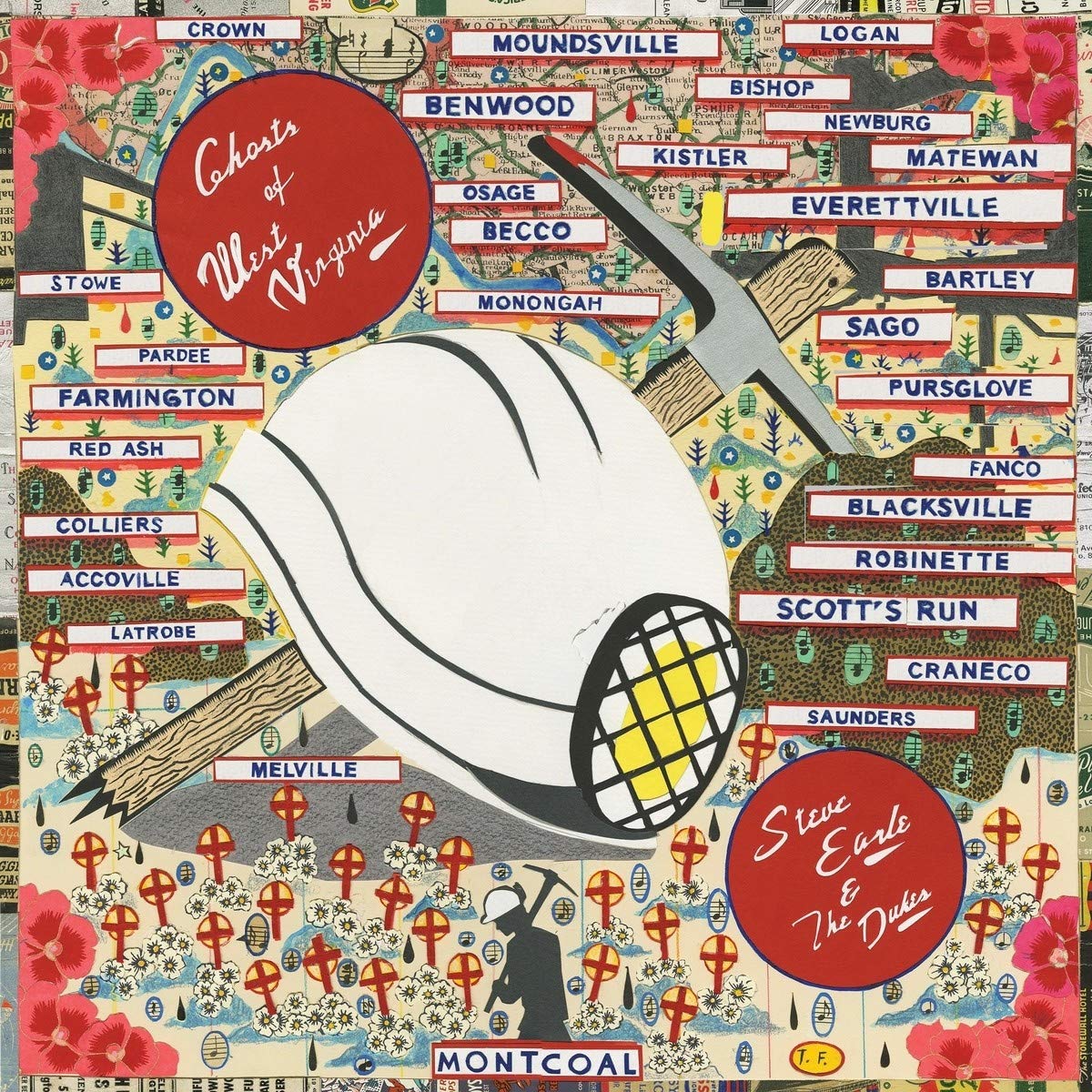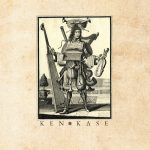 Steve Earle & The Dukes
Steve Earle & The Dukes
Ghosts of West Virginia
New West Records [2020]

In 2010, the worst mining disaster in American history happened at the Upper Big Branch coal mine in West Virginia, killing 29 miners in the explosion. Early this Spring, an Off-Broadway play telling the story of the victims and their families titled “Coal Country,” ran for only a few weeks before the COVID-19 shut-down, with Americana singer/songwriter Steve Earle playing the role of a “Greek chorus with a guitar” delivering seven of the songs that appear on his new album, recorded with his long time band, The Dukes.
This is Earle’s 20th studio album – including a collaboration with Del McCoury’s bluegrass band, and another with Shawn Colvin, plus two that were straight up tribute albums, one celebrating the music of his mentor, Townes Van Zandt, the second for Nashville stalwart Guy Clark – with a consistent theme that dates all the way back to his 1986 debut, Guitar Town, of telling the stories of the working class people who’ve had to struggle to get by.
Steve Earle’s last album of original music with the Dukes was 2017’s So You Wannabe An Outlaw, which included a duet with Willie Nelson on the title track, and leaned at times toward the rockier side of the Americana spectrum. For the songs here on “Ghosts of West Virginia,” Earle turns to inspirations like Woody Guthrie for songs that celebrate the values of miners, “Union, God & Country,” and a banjo stomper that declares the “Devil Put the Coal in the Ground,” saying “that’ll be a dollar someday.” But that money always finds its way into the hands of the owners, while the miners who bring it up out of the ground die early from “Black Lung,” which is a rocking country fiddle number that sounds surprisingly up-tempo for the dark subject matter.
But in the curdling sturdy acoustic rocker that is the climax of the album, “It’s About Blood,” Earle cuts to the chase: “Once upon a time in America, a working man knew where he stood/Nowadays just getting by is a miracle/Probably couldn’t give it up if I could/I don’t want to hear about the state of the economy, fiscal reality, profit and loss/None of that matters when you’re underground anyway/Damn sure can’t tell me nothin’ ‘bout cost/…It’s about muscle/It’s about bone/It’s about a river runnin’ thicker than water, and/It’s about blood.” And to drive it further home, at the end of the song Earle shouts out the names of the 27 who lost their lives, “every man that died for a coal-covered dollar/Lung full of dust and a heart full of lies.”
“Ghosts” opens with the brief a cappella spiritual that sounds alike a field chant, “Heaven Ain’t Goin’ Nowhere,” and midway through Earle gives the traditional folk hero in “John Henry Was a Steel Drivin’ Man” an update as a union organizer. “Time Is Never on Our Side” is a gentle acoustic ballad that captures the fatalistic reality of those who are barely getting by, and have to “take whatever fate provides.” “If I Could See Your Face Again,” is a love song sung by one of the widows of the miners, performed here by Eleanor Whitmore, who plays fiddle and mandolin with The Dukes, a beautiful moment.
“Fastest Man Alive,” another fiddle tune where Earle tells the story of Chuck Yeager, another West Virginia native, but someone who didn’t end up in the mines, but became a test pilot, celebrated as the first pilot in history to have exceeded the speed of sound. The ten-track album weighs in at a brief 30 minutes, but the heavy subject matter makes it feel more substantive, given the artful way Earle and his band tell these stories of human tragedy, struggle and loss. The closing track, “The Mine” is the first song that Earle wrote, which captures the romantic hopes and dreams that attracted so many to the steady work, which took the health and lives of so many.
At the heart of this homespun country-infused folk music of America’s mountain country are the stories of real people and music that connects those stories to the daily rhythms of their lives. Steve Earle is nothing if not a great storyteller, and here he puts his more aggressive progressive political politics to one side so that he can build a bridge to the working-class people whose struggles and joys gives heart and soul to the music of Americana.
Key Tracks: “It’s About Blood” / “Fastest Man Alive” / “If I Could See Your Face Again”
Artists With Similar Fire: John Hiatt / Robbie Fulks / Jason Isbell
Review History: Guy (2019) / So You Wannabe An Outlaw (2017) / Colvin & Earle (2016) / Terraplane (2015) / The Low Highway (2013) / Townes (2009)
Steve Earle Website
Steve Earle Facebook
New West Records
– Reviewed by Brian Q. Newcomb
Brian Quincy Newcomb has found work as rock critic and music journalist since the early 80's, contributing over the years to Billboard Magazine, Paste, The Riverfront Times, and The St. Louis Post-Dispatch. [Brain sadly passed away on April 15, 2024, but his reviews live on as a lasting tribute to his impact on music journalism. We keep him on our minds with every review we post.]





